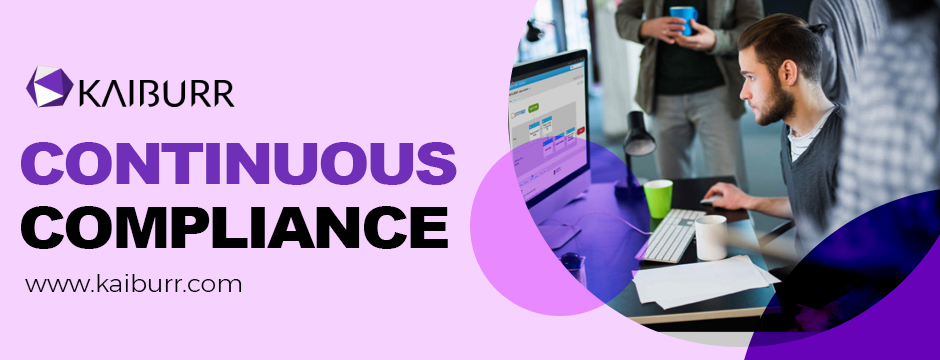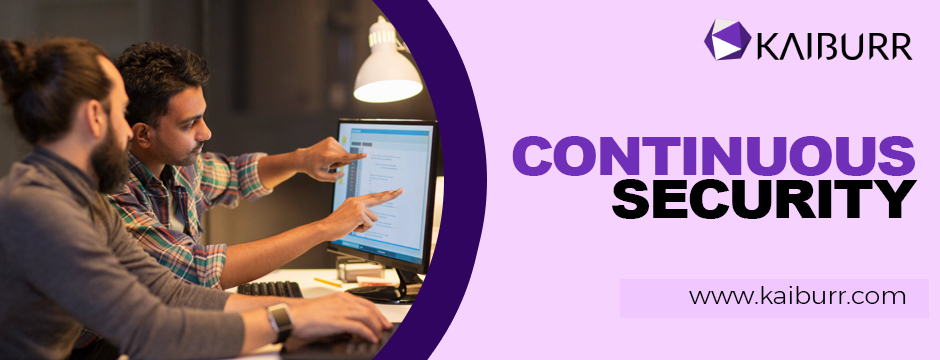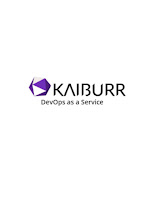Compliance is essential for establishing consumer trust and avoiding costly fines in today's firms since they frequently deal with sensitive user data with continuous compliance. Many businesses frequently implement draconian security measures only before a compliance audit or after a cyberattack. However, after a few months, they stop paying attention to security protocols and compliance mandates until the subsequent audit period.
This not only creates the potential for security issues, but it also increases the burden on the teams responsible for getting ready for upcoming audits. The opposing strategy to this dangerously cosy situation is continuous compliance. It involves consistently and proactively preparing for potential dangers and compliance needs while maintaining complete peace of mind.
Consciousness of Continuous Compliance
Compliance is essential for establishing consumer trust and avoiding costly fines in today's firms since they frequently deal with sensitive user data. Many businesses frequently implement draconian security measures only before a compliance audit or after a cyberattack. However, after a few months, they stop paying attention to security protocols and compliance mandates until the subsequent audit period.
This not only creates the potential for security issues, but it also increases the burden on the teams responsible for getting ready for upcoming audits. The opposing strategy to this dangerously cosy situation is continuous compliance. It involves consistently and proactively preparing for potential dangers and compliance needs while maintaining complete peace of mind.
What are continuous compliance processes?
Continuous compliance is not an all-encompassing answer that you can take as a pill with continuous security. It is divided into many aspects or procedures that you must proactively carry out in accordance with your compliance needs and business security standards, including:
Vulnerability management
Policy management
Vendor management
Data management
Risk management
Incident management
HR management
Why Staying Continuously Compliant is Key?
Compliance is not only the sensible course to take, but also a requirement in today's dynamic and ever-evolving cyber world. In order to comprehend it better, we may actually decompose it into various outcomes of different courses of action.
keeping meticulous records of everything to ensure ongoing compliance This continual compliance substitute requires a lot of work and is prone to mistakes.
Waiting till the periodic audit periods: Continuous monitoring provides a higher level of security assurance than even the periodic audit times. The smallest difference in audit timeframes might result in an oversight, creating a weak spot for hostile attackers. Additionally, your team members would get overworked from all the work that needed to be found, remedied, and documented. You've heard the expression, "Penny smart, pound foolish."
Offers immediate compliance
The gap between risk identification and remediation processes may be closed by your team by being proactive and diligent in monitoring your organization's non-compliant assets. By doing this, you can guarantee real-time awareness of the risks and vulnerabilities affecting your IT assets.
In addition, team leaders avoid putting out unnecessary last-minute fires by making quicker and more informed decisions. On the other hand, conventional audit-oriented compliance systems allow for last-minute adjustments and procedures, putting pressure and strain on teams.
Boosts the reputation of your business
New alliances frequently start out on a foundation of security-based trust. Vendors frequently check a company's dedication to compliance and security. Therefore, creating and upholding ongoing compliance aids in luring new company opportunities and enhancing client loyalty.
Cloud-based continuous compliance
Security is a primary priority for reputable and well-liked cloud service providers like AWS, GCP, and Azure. However, storing workloads and other assets in the cloud inherently necessitates the customer's (that's you) compliance and security efforts.
Bottom Line
Although difficult, especially for multi-cloud architectures, achieving and maintaining compliance across clouds and apps is not impossible with continuous compliance. In reality, you may reduce asset complexity and regularly check for compliance by using a system like Resmo for continuous compliance monitoring and visibility.




.jpg)




0 Comments